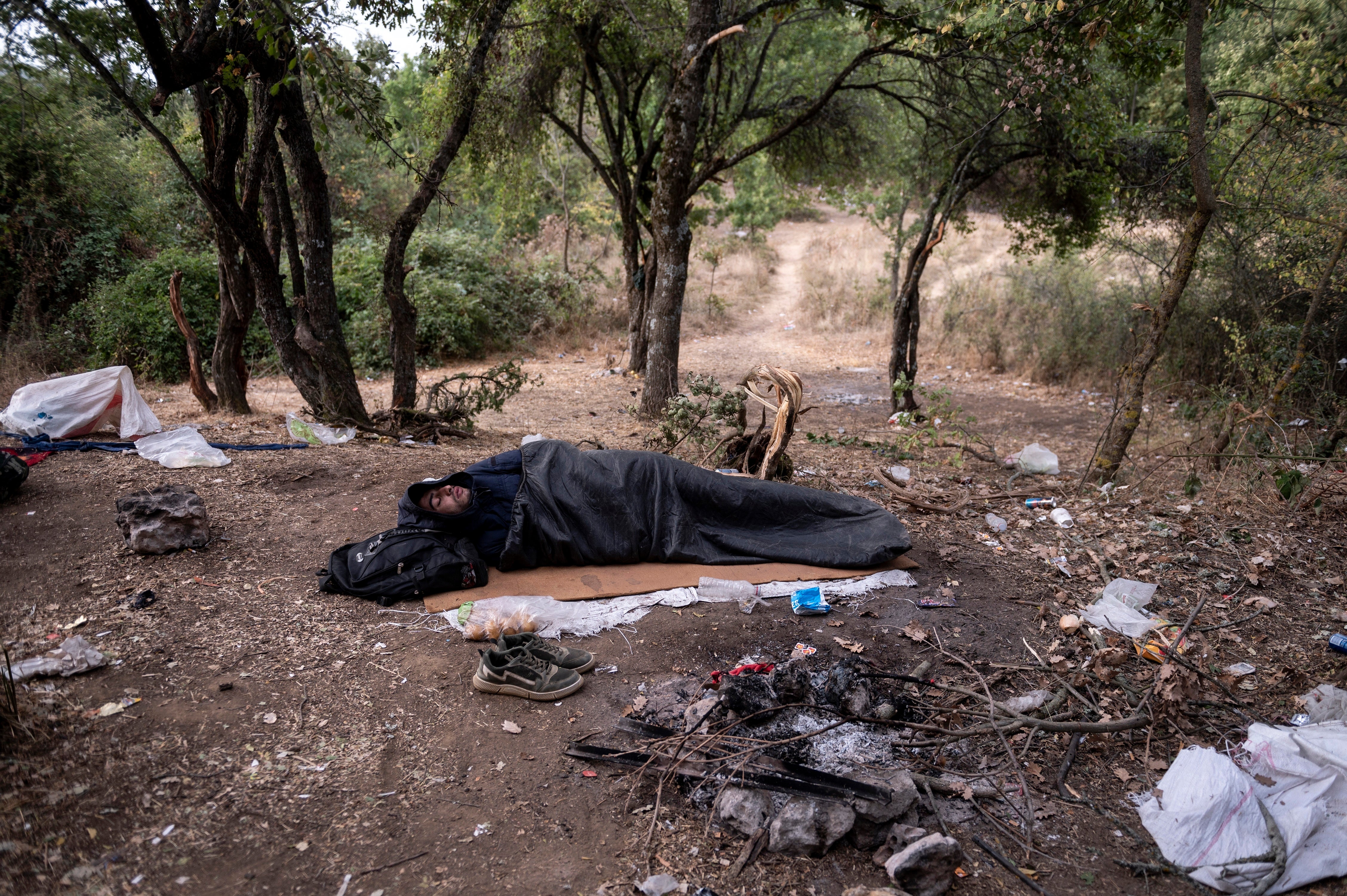For migrants in Greece, road to heaven leads through Albania
A relatively smooth section of Greece's rugged border with Albania is turning into a major thoroughfare north for migrants in Greece seeking a better life in Europe's prosperous heartland

In the early 1990s, tens of thousands of impoverished Albanian migrants slogged through the oak woods near the village of Ieropigi, dodging Greek border patrols to seek work in Greece after the collapse of communism in Albania.
Thirty years later, the cross-border flow is reversed, though on a much smaller scale. Now it's people from the Middle East and Africa who flit through the same oak woods, moving from Greece to Albania this time, halfway through their long trek to Europe s heartland.
Since 2018, migrants and refugees who'd rather try their luck somewhere richer than Greece have made this relatively smooth bit of the rugged border the main way out of the country by land.
Shepherd Michalis Trasias, 69, who grazes his sheep on the Greek side of the border, told The Associated Press he sees groups heading into Albania every day.
“Very many refugees cross — in their hundreds,” he said. “The frontier's just a hundred meters (yards) from here. Those that the Albanians catch they send back. Those who manage it continue, where to, they alone know.”
Migrants or refugees who don't want to stay in Greece have several options, all illegal: To stow away on a ferry — or buy a berth on a smuggling boat — for Italy; use fake papers to catch a flight out; or walk through Bulgaria, North Macedonia or Albania.
And with Bulgaria being seen as too dangerous, and North Macedonia increasingly well guarded, large numbers are opting for Albania, even though its patrols are strengthened by officers from the European Union's Frontex border agency. Police data show Albania has seen a rise in arrests for illegal entry this year, while North Macedonia — outside which 10,000 people had camped five years ago waiting to sneak in — reports a decline.
Albanian interior ministry spokesman Ardian Bita said his country is “doing its utmost to fight the organized crime” groups that help traffic migrants, and has arrested “a considerable number” of smugglers this year.
The main base for the crossings is an abandoned army guard house — filthy and decrepit — and the surrounding woods a few hundred meters from the border, a half-hour's walk from the closest Greek village of Ieropigi and 220 kilometers (140 miles) west of Greece's second-largest city, Thessaloniki There's water from a pumping station, from which some also tap electricity to charge their phones.
About 50 people were camped in the area during a visit by the AP, waiting to make their crossing attempt alone or with the paid help of smugglers. The population can rise up to a few hundred, most of whom are periodically rounded up and removed by Greek police. Few stay long.
Among those who do is Shaikh Musa Abdallah from Sudan who's stayed in the decrepit former guardhouse for 50 days, with his wife and five children, ages 5-15.
“I have tried six times so far to cross” into Albania, hoping to continue to Serbia, he told the AP. “But Frontex stopped me. For others it is very easy to cross, but for families it is very difficult.”
Abdallah said he's lived in Greece for the past three years, and now proposes to abandon his efforts to move on.
Mohammad Nour Mahmood Al Damad from Syria has also been turned back, six times in the past seven days. But he's traveling without children and is determined to persist, after being refused asylum in Greece.
“I want to leave, to go to any other country,” he said, baking potatoes under the trees with a fellow Syrian. “I don't want to go to Europe, just Albania or Kosovo. I want a good life.”
Husam Hderi, 30, wants the same but proposes to seek it further abroad.
“I want to go to Albania, then to Kosovo and from there to Bosnia to reach Italy,” the Palestinian from Syria said. “I have a family, two children in Syria. Once I get there I will bring them so that we can live together.”
Hderi reached Greece a month ago, slipping across the land border from Turkey and then being driven by people smugglers to Thessaloniki. He said that so far he has paid smugglers 2,200 euros ($2,570) to reach Ieropigi, and he is determined to continue north.
“Frontex is a big problem,” he said. “For a month I've been constantly trying to enter (Albania) and they keep sending me back.”
___
Llazar Semini in Tirana, Albania, and Konstantin Testorides in Skopje, North Macedonia, contributed to this story.
__
Follow Kantouris on Twitter at https://twitter.com/CostasKantouris
___
Follow AP’s global migration coverage at https://apnews.com/hub/migration
Bookmark popover
Removed from bookmarks